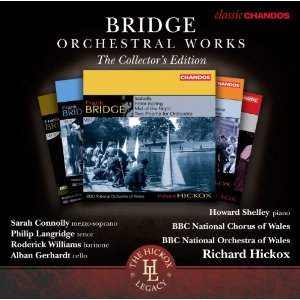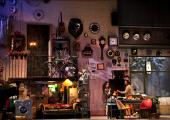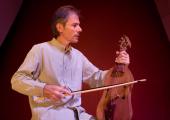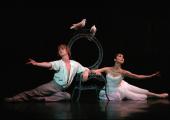Mangan, Royal Academy Opera Students, BBCSO, Denève, Barbican Hall

Hands on hearts for the sadness and profundity in two French fantasies
Highly sexed cockerels and cats, a lovesick lion and a ballet of frogs might not seem like a recipe, or rather a menagerie, for profundity. Yet in two ravishing French man (or child)-meets-beast fables for the stage, Poulenc and Ravel are quite capable of tearing at our heartstrings. That they did so unremittingly last night was very largely due to the supernaturally beautiful sounds master conjuror Stéphane Denève drew from the BBC Symphony Orchestra.


 Frank Bridge: Orchestral Works BBC National Orchestra of Wales/Richard Hickox (Chandos)
Frank Bridge: Orchestral Works BBC National Orchestra of Wales/Richard Hickox (Chandos)



 Dvořák: Symphony No 7, In Nature’s Realm, Scherzo capriccioso Bournemouth Symphony Orchestra/José Serebrier (Warner Classics)
Dvořák: Symphony No 7, In Nature’s Realm, Scherzo capriccioso Bournemouth Symphony Orchestra/José Serebrier (Warner Classics) 
 Renée Fleming: Poèmes - Music by Ravel, Messiaen, Dutilleux (Decca)
Renée Fleming: Poèmes - Music by Ravel, Messiaen, Dutilleux (Decca)

 Ravel: Complete Music for Violin and Piano Alina Ibragimova, Cédric Tiberghien (Hyperion)
Ravel: Complete Music for Violin and Piano Alina Ibragimova, Cédric Tiberghien (Hyperion)